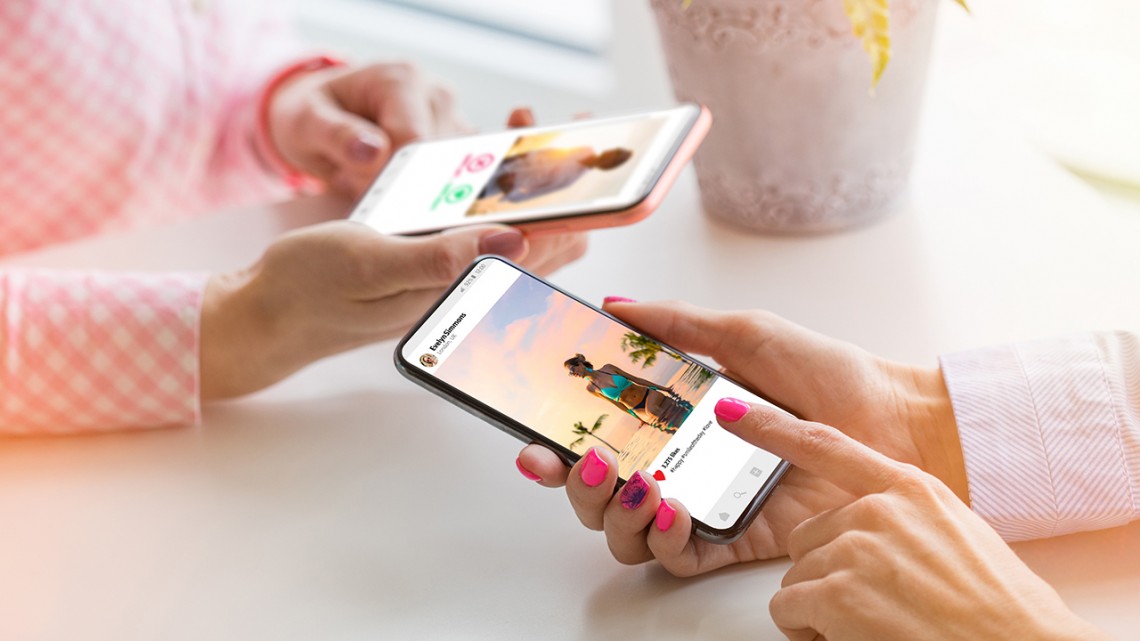
Women on Instagram derided as too real – or not real enough
By Melanie Lefkowitz
Female influencers on Instagram – whose livelihoods depend on their ability to build and maintain a prominent social media following – endure criticism and harassment both for being too honest about their lives and for seeming too fake, a new Cornell study has found.
This leaves women on Instagram caught in an “authenticity bind” – the nature of social media compels them to share details from their personal lives, but these details make them vulnerable to abuse or charges that they’ve “curated” or faked their online personas.
For example, they might be mocked for posting photos of themselves without makeup – but also derided for posting only images of an immaculately clean kitchen.
“Across social networks, content creators are compelled to be authentic and ‘real’ but in ways that are quite narrowly defined,” said Brooke Erin Duffy, associate professor of communication and co-author of “Gendered Visibility on Social Media: Navigating Instagram’s Authenticity Bind,” which published in October in the International Journal of Communication.
“If they’re deemed too real, if they express inner thoughts that seem too personal or intimate, they may face criticism,” Duffy said. “But if they aren’t considered real enough, if audiences view them as highly curated or excessively performative, or so aspirational that they are unrelatable, they experience blowback. Essentially a woman on social media, especially one with a large following, can’t win.”
Instagram influencers – people with established audiences who may be paid by the brands they endorse – need to be in the public eye to earn money, but that online visibility leaves them vulnerable to harassment.
Research has found harassment on Instagram can be common, particularly among those with a significant social media presence. And abuse is more prevalent – and potentially more harmful – for women and people from marginalized communities, research shows.
Yet few controls and restrictions exist on Instagram, leaving harassment victims particularly helpless when the success of their businesses depends on social media prominence, Duffy said.
“There’s a pretty vibrant community of people who are spending hours upon hours policing and critiquing the activities of content creators – and in ways which are highly gendered,” Duffy said. “Did they use Photoshop, did they hire child care, are they doing this just for the cameras? And unlike high-profile people who have teams of managers to help them navigate networked hate and harassment, these are ordinary individuals who all of a sudden find themselves being scrutinized for every single thing they do.”
Or, as one of the Instagrammers interviewed for the study phrased it, “You haven’t really made it till you’ve been hated on.”
Biases on social media tend to mirror inequities in real life, research has shown. Women with an online presence – whether they’re journalists, politicians, academics or content creators – are held to different standards and often subject to harsher critiques than men, Duffy said.
“A lot of the demands content creators are expected to adhere to are oriented around these idealized notions of feminine real-ness,” she said. “What we mean by a ‘real woman’ tends to be defined by physicality, but we don’t really rely on physicality when we look at a man.”
For the study, Duffy and co-author Emily Hund of the University of Pennsylvania interviewed 25 professional or aspiring female Instagrammers in the areas of fashion, beauty and lifestyle. They found the women tended to censor themselves in anticipation of criticism.
“It’s a big turnoff if you come across as fake,” one Instagrammer told the researchers. “People don’t want to know robots; they don’t just want to know the screen. They kind of want to know the people behind the screen.”
Women also said they noticed viewers were more engaged with posts confiding personal or private information about their lives, but they also said they felt reluctant to share anything “that’s not elevated and inspirational/aspirational.”
“If I posted a picture of my dirty restroom, like, would anyone like that?” another woman said. “Would anyone want to see that? You know, I don’t think so. I think even people that are not influencers – on a personal level, do you post, ‘Got in a huge fight with my husband last night?’ No! No one does that.”
Duffy said she hopes the study calls attention to the lack of safeguards for female Instagram influencers, whose challenges are often disdained by a skeptical public.
“They’re dismissed as frivolous; they’re not taken seriously,” she said. “Recognizing the very uneven ways people experience online visibility is important, but this study is also a call to take seriously the complete lack of both regulation and recourse that people have in social media spaces.”
Media Contact
Get Cornell news delivered right to your inbox.
Subscribe
